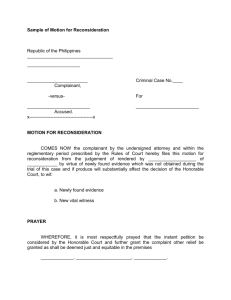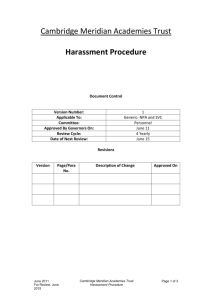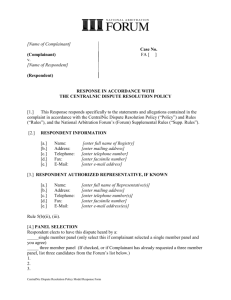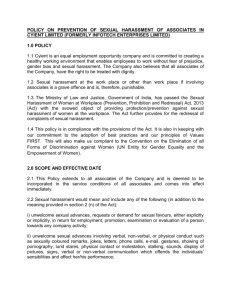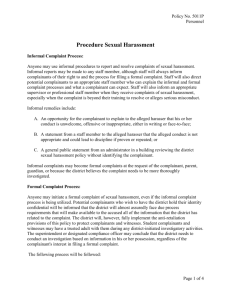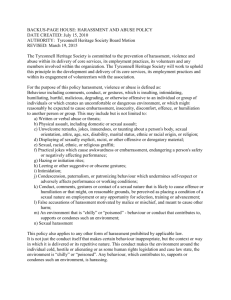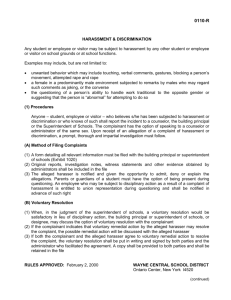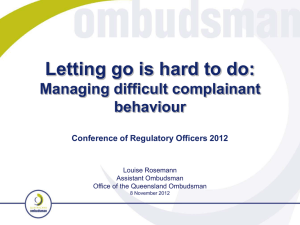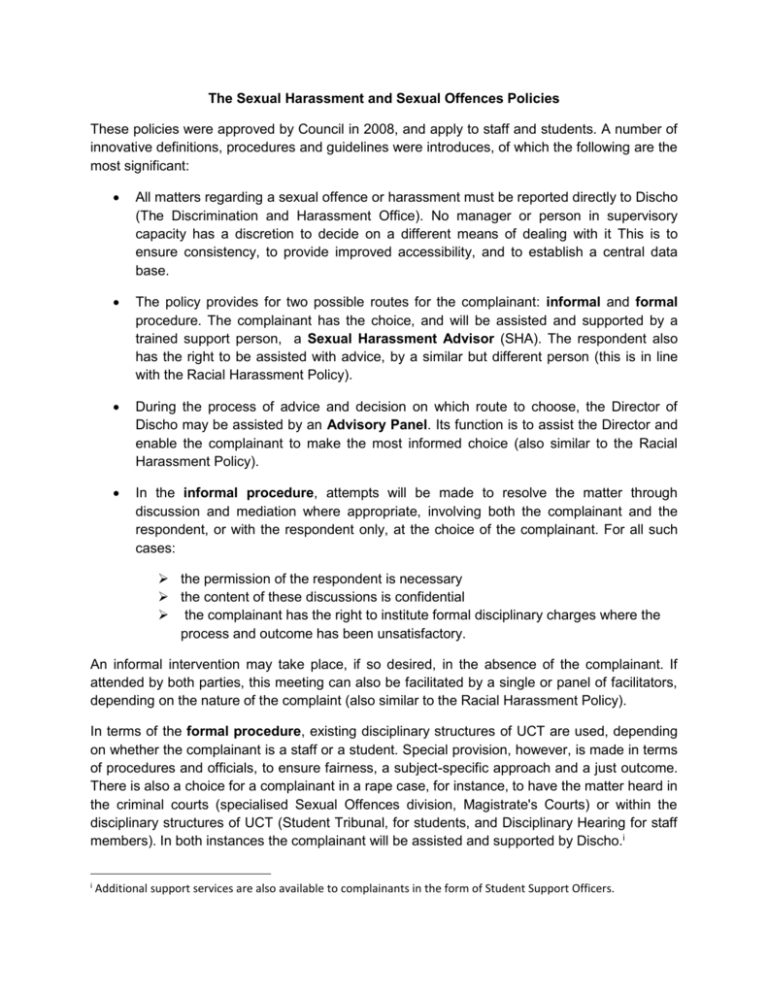
The Sexual Harassment and Sexual Offences Policies
These policies were approved by Council in 2008, and apply to staff and students. A number of
innovative definitions, procedures and guidelines were introduces, of which the following are the
most significant:
All matters regarding a sexual offence or harassment must be reported directly to Discho
(The Discrimination and Harassment Office). No manager or person in supervisory
capacity has a discretion to decide on a different means of dealing with it This is to
ensure consistency, to provide improved accessibility, and to establish a central data
base.
The policy provides for two possible routes for the complainant: informal and formal
procedure. The complainant has the choice, and will be assisted and supported by a
trained support person, a Sexual Harassment Advisor (SHA). The respondent also
has the right to be assisted with advice, by a similar but different person (this is in line
with the Racial Harassment Policy).
During the process of advice and decision on which route to choose, the Director of
Discho may be assisted by an Advisory Panel. Its function is to assist the Director and
enable the complainant to make the most informed choice (also similar to the Racial
Harassment Policy).
In the informal procedure, attempts will be made to resolve the matter through
discussion and mediation where appropriate, involving both the complainant and the
respondent, or with the respondent only, at the choice of the complainant. For all such
cases:
the permission of the respondent is necessary
the content of these discussions is confidential
the complainant has the right to institute formal disciplinary charges where the
process and outcome has been unsatisfactory.
An informal intervention may take place, if so desired, in the absence of the complainant. If
attended by both parties, this meeting can also be facilitated by a single or panel of facilitators,
depending on the nature of the complaint (also similar to the Racial Harassment Policy).
In terms of the formal procedure, existing disciplinary structures of UCT are used, depending
on whether the complainant is a staff or a student. Special provision, however, is made in terms
of procedures and officials, to ensure fairness, a subject-specific approach and a just outcome.
There is also a choice for a complainant in a rape case, for instance, to have the matter heard in
the criminal courts (specialised Sexual Offences division, Magistrate's Courts) or within the
disciplinary structures of UCT (Student Tribunal, for students, and Disciplinary Hearing for staff
members). In both instances the complainant will be assisted and supported by Discho.i
i
Additional support services are also available to complainants in the form of Student Support Officers.


